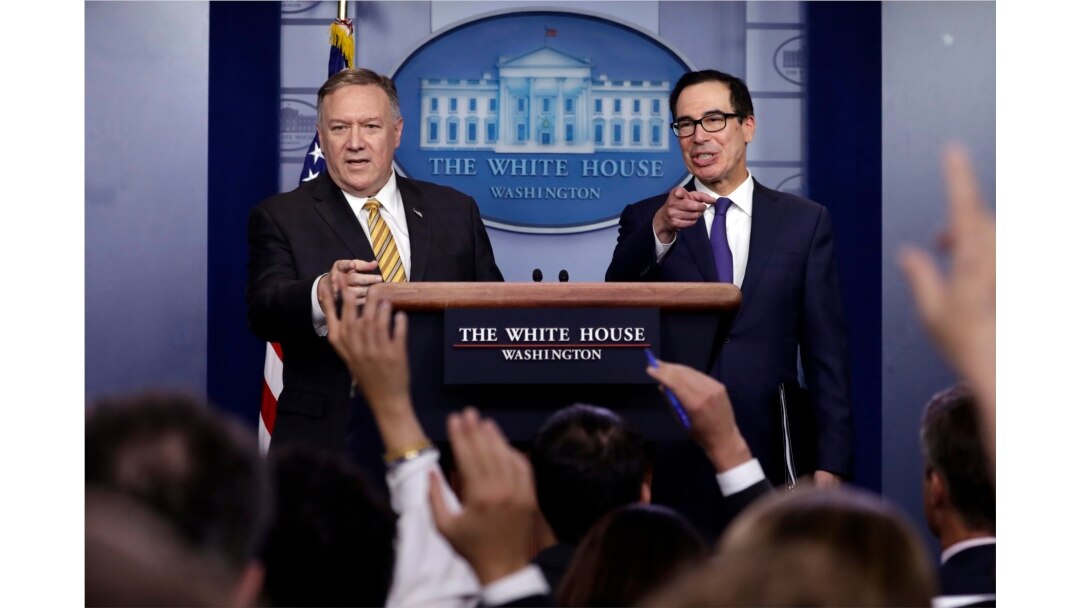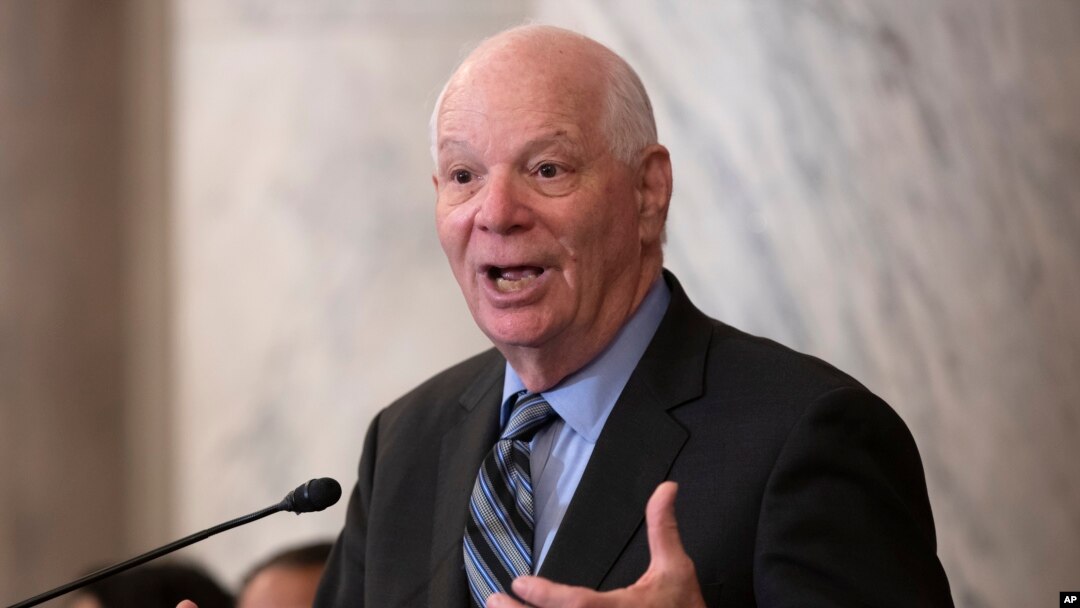This story originated in VOA's Russian Service. Some information is from AFP and Reuters.
WASHINGTON - The Senate's ranking Democrat on the U.S. Helsinki Commission says Russia's jailing of human rights activists during recent protests in Moscow demands a coordinated U.S.-led response.
"The international community needs to be concerned about what's happening in Russia," Senator Ben Cardin of Maryland told VOA's Russian Service on Thursday.
"Russia is a signatory to the Helsinki Final Accords, which gives every signatory country a responsibility to challenge what's happening in other countries," he said. "Secondly, Congress made it clear with the passage of the Magnitsky law that we will not allow people to be abused in other countries, to have their basic human rights taken away, and still enjoy the benefits of our country through the use of our banking system for the use of the ability to visit our country.
"The uptick of imprisonment of people who are standing up for basic human rights in Russia requires an international response led by the United States," he added, referring to a recently published report by the Moscow-headquartered Memorial Human Rights Center.
Produced in partnership with various international human rights groups, the report, which says at least 200 political prisoners are unlawfully held in Russian prisons—a number "increased significantly" from 2015—was the centerpiece of a bipartisan letter that Cardin, along with 10 fellow senators, sent to Secretary of State Mike Pompeo and Treasury Secretary Steve Mnuchin on Tuesday.

U.S. Secretary of State Mike Pompeo and Treasury Secretary Steve Mnuchin take questions during a briefing on terrorism financing at the White House, Sept. 10, 2019, in Washington.
In the letter, the legislators call on the administration officials to issue a new round of sanctions in accordance with the Magnitsky Act over Russia's targeting of political dissidents within its own borders.
While some Russian government officials have already been targeted by U.S. sanctions for arbitrary incarcerations, the letter states, "many others — including Prosecutor General Yuri Chaika, Justice Minister Alexander Konovalov, and Federal Penitentiary Service Director Gennady Kornienko — have not."
Thomas Graham, a distinguished fellow at the Council on Foreign Relations and managing director of Kissinger Associates, however, said getting the White House to comply with the request may be an uphill battle.
"I don't think the administration is interested in levying further sanctions on Russia, certainly not in a major way," Graham said when asked about Tuesday's letter.
"[This administration] hasn't up to this point demonstrated a great deal of concern about what's happening domestically in Russia, so my guess is that they would be resistant to that idea," he said, adding that a critical mass of Congressional pressure, however, could tip the scales.
"We saw with the second wave of sanctions on the chemical weapons issue connected with [ex-spy Sergei] Skripal, that it took several months for the administration actually levy those, and only after pressure from Congress," he said. "So the issue here is to what extent Congress is prepared to put pressure on the administration to levy sanctions in accordance with the Magnitsky Act.
"But if it's just a letter from 11 senators," he cautioned, "that is not going to be sufficient to get the administration to act."
Senator Cardin, however, was more optimistic.
"It's always hard to predict how the Trump administration will respond, but I can tell you there is strong bipartisan support [for the idea] that you cannot allow this type of conduct in Russia to go unchallenged," he said. "If we do, it will lead to other repressive activities that are against U.S. security interests. So, it's important for the United States to lead, and we're hopeful that by the strong bipartisan support in the Senate, that the administration will take action."
Tuesday's bipartisan letter, signed by several Democratic and Republican senators, comes amid a series of anti-Kremlin protests in Moscow that have resulted in mass detentions and arrests of high-profile actors and activists that appear to be politically motivated.
Cardin, who is also the top Democrat on the Senate Foreign Relations Committee, called on other countries who've passed versions of the Magnitsky Act to press for similarly targeted sanctions of Russian civil servants behind the incarceration of various human rights activists.
"I do think we can coordinate active action, and we're a much more effective if the Magnitsky-type sanctions are imposed beyond just the United States," said Cardin.
Russia on Tuesday expressed "bewilderment" by a fresh round of non-Magnitsky U.S. sanctions on several Russians — including a businessperson tied to President Vladimir Putin and a disinformation operation purportedly aimed at conspiring to manipulate the U.S. 2018 midterm election — to which they vowed to respond.
FILE - Secretary of State Mike Pompeo, right, walks with Britain's Foreign Secretary Dominic Raab for a press availability at the State Department in Washington, Aug. 7, 2019.
Last week, British Foreign Secretary Dominic Raab said London would introduce Magnitsky-style laws after it leaves the European Union to freeze assets of those deemed responsible for human rights abuses.
In 2018, the British parliament passed a so-called “Magnitsky amendment” to the Sanctions and Anti-Money Laundering Act to give the government the power to impose sanctions on people who commit gross human rights violations.
Raab did not give any further details of the government's plans would differ from these existing powers.


